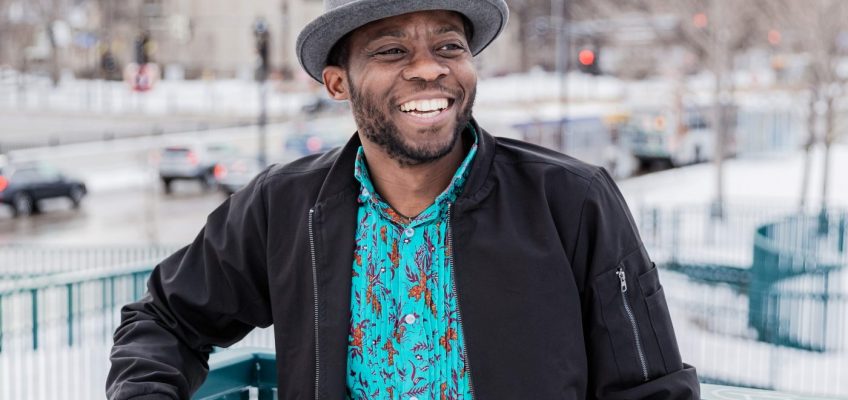At the Ordway Concert Hall on Friday evening, composer, vocalist and multi-instrumentalist Nyttu Chongo brought together traditional sounds from Mozambique with Western classical music instruments in a concert titled “Phulani” (Open), that felt like a joyful experiment. With a rotating cast of classical musicians, Chongo’s music demonstrated deep knowledge of African music even as it forged new connections and boundaries.
Chongo made his way to Minnesota in 2016 and put out his most recent album, “Libandzuwa: The Power of the Sun,” back in 2021, after receiving a Minnesota State Arts Board Artist Initiative Grant. At the Ordway, Chongo mostly played songs from that album, and one or two new ones that he’s hoping to put out for his next release. From personal meditations on family and home to songs that touched on social and political issues, Chongo shared music that dreamt of better futures. His work grappled with pollution, global education and a raw response to the murder of George Floyd, titled “The Willow (9 Minutes, 29 Seconds).”
Chongo played several instruments himself, including a majestic-looking lute instrument called a kora. Chongo had the instrument set on a stand and almost straddled it as he skillfully plucked and strummed its 21 strings. He also played numerous different types of an instrument called an mbira, or a thumb piano. The most unusual of these seemed to be built inside the body of a guitar, sans the neck. Chonga would reach into it and furiously pluck the instrument at breakneck speed.
Often while playing, Chonga sang with a bright, energetic voice. He’d tell stories as well and joke with the audience. At times he’d whistle and make a trumpet-like sound with his lips. In more internal moments, he’d hum with an intense shamanistic energy.
When not playing solo, Chongo invited a handful of instrumentalists on stage with him. Among them was cellist Steven Schumann, who arranged the music for the chamber set-up. Schumann’s playing often carried a light spirit, dancing along with Chongo in tripping experimentation.
Violinist Sophia Butler, who also joined Chongo for his Cedar Commissions performance in 2022, played with a tender melancholy in a duet with the composer.
The fusing of the different musical traditions sparked threads of discord and a touch of pandemonium. A chaotic rhythmic relationship between the strings and Chongo’s instruments made for a restlessness in a number of the songs, particularly in “The Willow” piece.
Chongo’s wife, Erin Olson, joined the group for “Gwalanini,” a piece whose sparse, poignant lyrics she co-wrote. The work takes its name from Chongo’s native language, Changana, and it means “sow the seeds,” or “plant.” The lyrics draw on words by Mozambican novelist Mia Couto, who writes that there are only “two nations: that of the living and that of the dead.” The song is about humans’ and plants’ shared connection as living beings. Olson sang the piece beautifully.
Chongo calls his genre of music “jazz bantu,” and there seems to be rich possibilities in what he’s trying to achieve. His small ensemble of musicians were playing at new conversations between vastly different musical styles, and time will tell where this direction will go. Perhaps more instruments — like additional percussion and maybe even wind and brass — will enrich this type of music further.


Leave a Reply